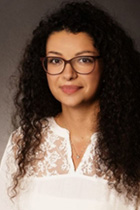Full text, catalogue, and publisher website
Full text (PDF):
Publisher website:
 In this article in Matatu: Journal for African Culture and Society, Annachiara Raia seeks to investigate the manifold relationships between traditional and contemporary, oral and written Swahili poetry - in the utendi and mashairi forms - and its recitation in terms of the following considerations: how have advances in technology changed the production, transmission and reception of Swahili Islamic poetry? To what extent do writing and orality coexist in a recited text? What is the nature of performer identity formation within a “discourse network” of artists - the composer (mtungaji), reader (msomaji), and singer (mwimbaji) - who, in Goffman’s words, play “participation roles” and appropriate poetry belonging to other living poets or to their own (sometimes anonymous) ancestors? In an attempt to answer these questions, Raia provides examples of performers and their performative craft.
In this article in Matatu: Journal for African Culture and Society, Annachiara Raia seeks to investigate the manifold relationships between traditional and contemporary, oral and written Swahili poetry - in the utendi and mashairi forms - and its recitation in terms of the following considerations: how have advances in technology changed the production, transmission and reception of Swahili Islamic poetry? To what extent do writing and orality coexist in a recited text? What is the nature of performer identity formation within a “discourse network” of artists - the composer (mtungaji), reader (msomaji), and singer (mwimbaji) - who, in Goffman’s words, play “participation roles” and appropriate poetry belonging to other living poets or to their own (sometimes anonymous) ancestors? In an attempt to answer these questions, Raia provides examples of performers and their performative craft.This article appeared in Matatu, Volume 51 (2020): Issue 1 (Jun 2020): Special Issue: “Power to the People?” - Patronage, Intervention and Transformation in African Performative Arts.

Annachiara Raia is a senior researcher at the ASCL and a university lecturer in the LUCAS department of the Faculty of Humanities of Leiden University.

